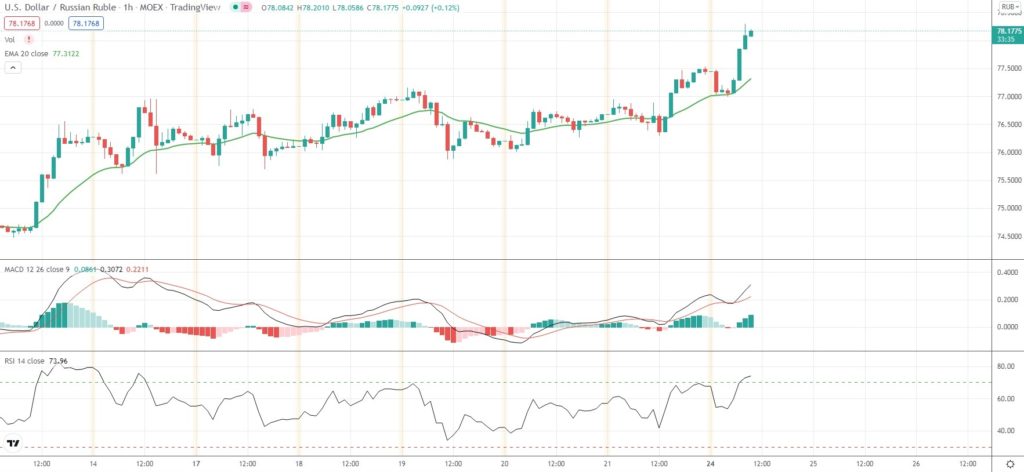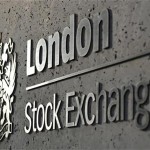USD/RUB touched a fresh 14 1/2-month high on Monday and Russian shares extended Friday losses amid broad risk aversion in the market due to a stand-off between Moscow and the West over Ukraine.
Geopolitical tensions have been increasing over the past several months after Russia bolstered its military presence near the Ukraine border, which Western nations consider as a preparation for invasion to prevent Ukraine from joining NATO. Moscow has not once denied such intentions.
The US State Department said over the weekend that it had ordered diplomats’ family members to leave Ukraine.
Russian 10-year OFZ bond yields surged to 9.50%, or a level not seen since early 2016. According to Promsvyazbank analysts, yields could climb further on expectations that Russia’s central bank will probably raise its benchmark interest rate again on February 11th.
“For the local market, expect risk-off to continue, with tensions smouldering and little opportunity to save face on either side – future events are up for debate, uncertainty will rule for now,” BCS Global Markets analysts wrote in a note to clients.
The rouble-based MOEX stock index slipped to a fresh 13-month low of 3,251.84 on Monday and was last down 4.83% on the day to 3,272.69.
Brent crude oil, a global benchmark for Russia’s main export, was gaining 0.47% on Monday to $88.11 per barrel.
As of 10:20 GMT on Monday USD/RUB was advancing 0.90% to trade at 78.1440. Earlier in the trading session the Forex pair climbed as high as 78.2961, which has been its strongest level since November 5th 2020 (79.3552). The exotic currency pair has appreciated 4.67% so far in January, following another 0.77% gain in December.
Meanwhile, the spread of the Omicron virus strain has led to record-high daily infections, as Russia reported 63,205 new COVID-19 cases on Sunday.
Risk asset sell-off also came amid rising expectations that the Federal Reserve will raise borrowing costs more aggressively compared to what market players had anticipated a month ago. Markets are now even pricing in a small probability of a rate hike at the FOMC policy meeting this week.
“We consider the higher risk is the FOMC’s statement portrays an urgency to act soon, likely in March, in the face of very high inflation. The urgency could culminate in a decision to abruptly stop quantitative easing by mid-February,” Commonwealth Bank of Australia analysts wrote in a client note, cited by Reuters.
“A bullish statement and/or a faster end to the QE programme could even encourage markets to price a risk of a 50bp rate hike in March,” which could trigger a knee-jerk reaction higher in the US Dollar.
Daily Pivot Levels (traditional method of calculation)
Central Pivot – 77.0908
R1 – 77.8895
R2 – 78.3305
R3 – 79.1292
R4 – 79.9279
S1 – 76.6498
S2 – 75.8511
S3 – 75.4101
S4 – 74.9691






